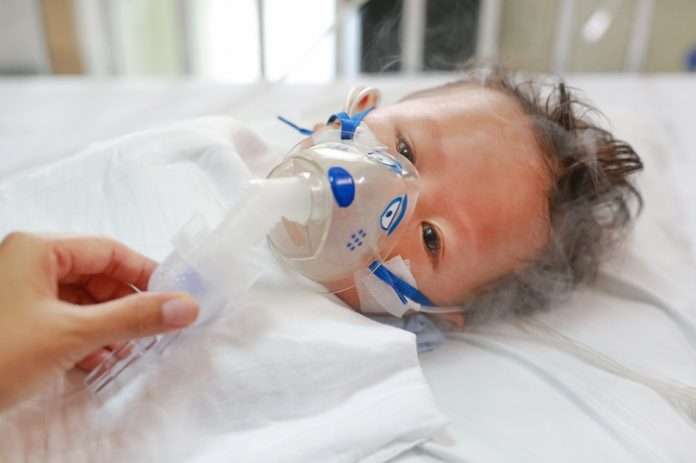An early seasonal surge in common pediatric respiratory illnesses could be the result of COVID-19 lockdowns and over-sterilization during the pandemic.
Although the number of cases of respiratory syncytial virus (RSV) infections varies from year to year, this season’s levels appear to be five to 10 times higher than in similar periods in 2018, 2019, and 2020, according to the RSV Hospitalization Surveillance Network.
RSV can cause severe health complications, particularly for infants, children, and older adults. Reported cases and hospitalizations have been rising in multiple regions throughout the United States.
Cases of influenza are also up. According to the Center for Infectious Disease Research and Policy at the University of Minnesota, 47 states reported increases in hospitalizations and outpatient care for the flu. Rates have been highest for those aged 85 and older and children under age four. Preliminary data shows 4.32 percent of patients who were hospitalized have also tested positive for COVID-19.
Lockdown Connection
The surge in RSV cases is no accident, says Chad Savage, M.D., an internist and founder of Your Choice Direct Care, president of DPC Action, and policy advisor to The Heartland Institute, which co-publishes Health Care News.
“The immune system learns to defend against viral respiratory infection through exposure to low levels of virus,” said Savage. “Thus, attempts to mitigate COVID spread by sterilizing the environment may have inadvertently caused the immune systems of children, isolated from their peers, to become ‘naive’ toward many common infections.”
That can lead to severe symptoms after children are re-exposed, a deficiency known as an “immunity gap.”
Spike in Infections, Severity
The United States and other nations that mandated widespread lockdowns, increased sterilization practices, and social distancing experienced a wave of unusually severe respiratory and influenza infections in 2021. In the summer of 2021, the Centers for Disease Control and Prevention (CDC) confirmed numbers nearly 200 times higher than the previous year.
Authorities knew the lockdowns would lead to a spike in other viral infections, says Savage.
“All of this was known pre-pandemic, yet [public authorities] did this anyway,” said Savage.
The lockdowns may also cause an increase in sensitivity to allergens, says Savage.
“Atopic conditions, [such as] asthma, allergies, and eczema, are also known to be much worse in children raised in hyper-sterilized environments,” said Savage. “Thus, the next most predictable thing may be that we could expect to be causing an atopic generation of children. Children may grow to have higher rates of asthma than prior generations.”
‘A Very Powerful Tool’
SARS-CoV-2 has a lower fatality rate than RSV in the pediatric population. On average, 60,000 to 80,000 children less than five years old are hospitalized for RSV each year. Although the infection is mild for most people, RSV may be responsible for one in 50 pediatric deaths.
Although this year’s RSV numbers are much higher, the CDC has reassured the public “most of the time RSV will cause a mild, cold-like illness.”
“I would actually contend that this tone is correct, as for most people RSV is mild,” said Savage. “However, the same is true for COVID, but the tone is one of fear instead of reassurance with caution about what to monitor for in case you are the rare severe case.”
Authorities hyped up concern about COVID-19 while downplaying RSV and other diseases that are less lucrative for governments, pharmaceutical companies, and health care providers, says Twila Brase, president, and co-founder of the Citizens’ Council for Health Freedom and a policy advisor to The Heartland Institute.
“Public health proved to be a very powerful tool in the hands of those who wanted to seize power over the American people [during the pandemic],” said Brase.
“Some states have learned lessons and changed their emergency health powers laws in the past two years or will change them in the coming legislative session,” said Brase. “Other states, whose political leadership did not change, will likely hold on to those powers for future restrictions on human rights.”
Ashley Bateman (bateman.ae@googlemail.com) writes from Virginia.
For more great content from Health Care News.






















[…] By Ashley Bateman | Health Care News […]